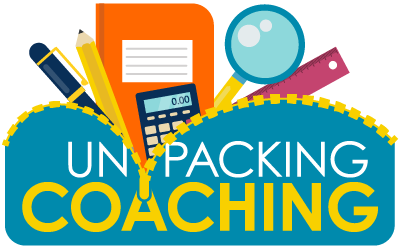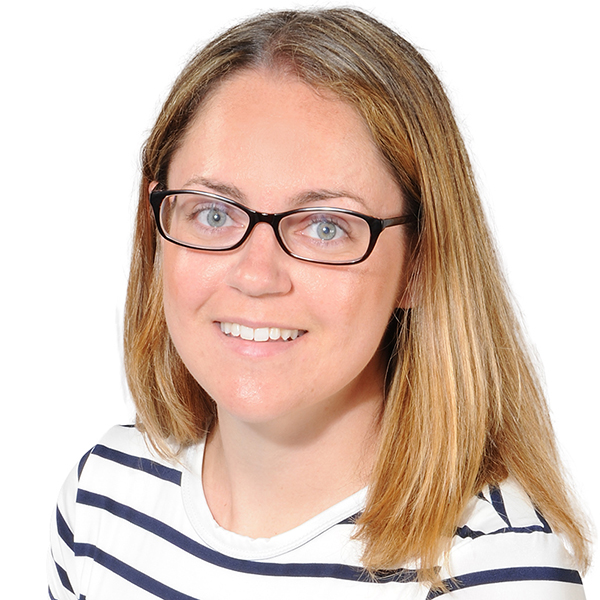Over the past few months, coaches and coachees have needed to adapt their coaching delivery and social-emotional teaching practices to a virtual format. Some of these practices are easier to adapt than others, leaving coaches and coaches wondering what to do. This webinar discusses how Pyramid Model practices can be used in virtual learning and strategies for implementing coaching of teachers virtually including how to conduct observations and collect information on coachees’ practices.
Coaching in a Virtual World

Date:
Nov 4, 2020Time:
12:00 AM(Eastern Time Zone)
Duration:
1 Hr
Related Resources
Webinar PPT Handout Action Planning Form Pyramid Model Practices for Virtual Learning Checklist Classroom Coaching Log with Definitions of Classroom Coaching Strategies Supporting Social Skills While Social Distancing Head Start Coaching Companion
Certificate Info
Certificate of Attendance
A downloadable certificate is available for both live and recorded webinars. To receive the certificate, you must fill out the evaluation survey.How to access the survey:
Live participants: You will receive an email after the webinar with the link to the survey. Recording viewers: The URL link for the survey will be displayed at the end of the webinar. You will need to type that URL into your internet browser to access the survey and certificate. Note: Type the URL exactly as you see it. URL is CASE SENSITIVE. Once you submit the survey, the certificate will appear. You can then save and/or print your certificate.NCPMI Presenter(s)

Mary Louise Hemmeter
Vanderbilt University
Mary Louise Hemmeter, PhD, is a professor of Special Education at Vanderbilt University. Her research focuses on effective instruction, social emotional development and challenging behavior, and coaching teachers. She has been a PI or Co-PI on numerous projects funded by the US Departments of Education and Health and Human Services. Through her work on the National Center on the Social Emotional Foundations for Early Learning and IES funded research projects, she was involved in the development of the Pyramid Model for Supporting Social Emotional Competence in Young Children and a model for coaching teachers to implement effective practices. She is currently the PI on an IES funded development project around program wide supports for implementing the Pyramid Model and a Co-PI on an IES efficacy study examining approaches to supporting teachers to implement embedded instruction. She was co-editor of the Journal of Early Intervention and President of the Council for Exceptional Children’s Division for Early Childhood. She received the Mary McEvoy Service to the Field Award.

Meghan von der Embse
University of South Florida
Meghan von der Embse is a Learning and Development Facilitator with the Florida Center for Inclusive Communities at the University of South Florida (USF). She provides training, technical assistance, and ongoing coaching supports for early childhood programs to build capacity implementing and sustaining Pyramid Model Supports. She also serves as the Assistant Director of the Program-Wide Positive Behavior Support Project at the University of South Florida. This project is funded by the Children’s Board of Hillsborough County. Meghan had previously served as the Director of Behavior Support Services at Easter Seals of Southeastern Pennsylvania and the Positive Behavior Intervention and Supports (PBIS) Facilitator for the agency’s early childhood and special education preschool programs. Meghan received her Education Specialist degree in School Psychology at Miami University and is a nationally certified school psychologist. She has practiced as a K-12 school psychologist in four states (OH, MI, NC, NE) and has expertise in providing training and technical assistance with multi-tiered systems of support (MTSS).
Guest Presenter(s)

Adrienne Golden
Vanderbilt University
Adrienne Golden is a doctoral student at Vanderbilt University, working with Dr. Mary Louise Hemmeter on projects focused on implementing the Pyramid Model in early childhood settings. Adrienne's role on these projects includes training and coaching teachers to implement the Pyramid Model in their classrooms. Adrienne also trains and mentors data collectors within the research lab and supports data management across research projects. Adrienne holds a master’s degree in early childhood special education and is a licensed teacher and Board Certified Behavior Analyst. Prior to pursuing her doctorate, Adrienne taught for 6 years in inclusive preschool classrooms, where she implemented the Pyramid Model. While teaching, Adrienne implemented a variety of curricula, modified and individualized instruction to meet the needs of all students, developed and implemented behavior support plans, supported the social and emotional development of young children, mentored practicum students and student teachers, and worked collaboratively with classroom staff and related service providers. Adrienne is researching sustainable models for coaching teachers on the implementation of Pyramid Model practices (e.g., reciprocal peer coaching).



